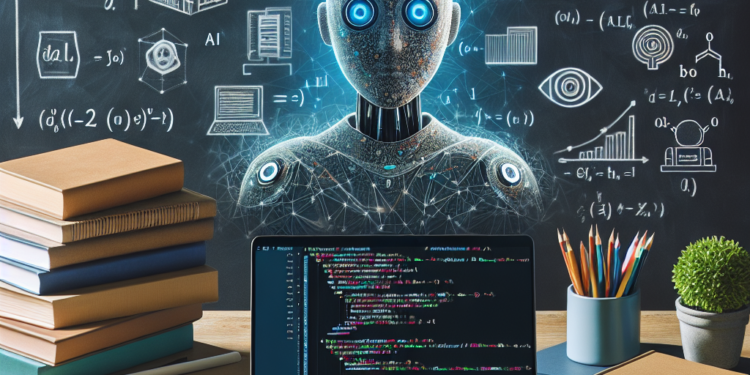Artificial Intelligence (AI) has become a hot topic in the technology world, with many industries incorporating AI into their systems to drive efficiency and improve performance. For beginners looking to explore the world of AI, there are many resources available to help them get started. In this article, we will explore some of the top AI software resources that beginners can use to gain knowledge and experience in the field.
1. TensorFlow
TensorFlow is an open-source machine learning framework developed by Google. It is one of the most popular AI software resources in the industry and is widely used by companies and developers worldwide. TensorFlow provides a comprehensive set of tools and libraries for building and deploying machine learning models. Beginners can use TensorFlow to learn how to build neural networks, train models, and optimize performance.
2. Microsoft Cognitive Toolkit
The Microsoft Cognitive Toolkit is another popular AI software resource that is widely used by developers and researchers. It is an open-source deep learning library that provides tools for building and training neural networks. The Cognitive Toolkit offers support for a wide range of deep learning algorithms, making it a versatile tool for beginners looking to explore the field of AI.
3. Scikit-learn
Scikit-learn is a popular machine learning library for Python that is widely used by developers for building and training machine learning models. The library provides a wide range of tools for data processing, feature extraction, and model evaluation. Beginners can use Scikit-learn to learn how to implement machine learning algorithms such as linear regression, decision trees, and support vector machines.
4. Keras
Keras is a high-level neural networks API that is designed to simplify the process of building and training deep learning models. It is built on top of TensorFlow and provides a user-friendly interface for building neural networks. Beginners can use Keras to learn how to create deep learning models and train them on their own datasets.
5. PyTorch
PyTorch is an open-source machine learning library that is widely used by researchers and developers for building and training neural networks. It provides a flexible and dynamic computational graph that allows developers to experiment with different architectures and algorithms. PyTorch is a great resource for beginners looking to learn how to implement deep learning models.
6. IBM Watson
IBM Watson is a suite of AI services that is designed to help developers build and deploy AI applications. It provides a wide range of tools for natural language processing, computer vision, and machine learning. Beginners can use IBM Watson to learn how to integrate AI services into their applications and explore the capabilities of AI technology.
7. Amazon AI
Amazon AI is a set of cloud-based services that are designed to help developers build and deploy AI applications. It provides tools for speech recognition, natural language understanding, and computer vision. Beginners can use Amazon AI to learn how to build intelligent applications that can understand and respond to human input.
8. Google Cloud AI
Google Cloud AI is a set of machine learning and AI services that are built on top of Google’s infrastructure. It provides tools for image recognition, language processing, and predictive analytics. Beginners can use Google Cloud AI to learn how to build and deploy machine learning models in the cloud and leverage Google’s powerful AI capabilities.
9. OpenAI Gym
OpenAI Gym is an open-source platform for reinforcement learning research. It provides a wide range of environments for testing and benchmarking reinforcement learning algorithms. Beginners can use OpenAI Gym to learn how to implement and evaluate reinforcement learning algorithms in a variety of environments.
10. H2O.ai
H2O.ai is a machine learning platform that is designed to help developers build and deploy machine learning models. It provides tools for data preprocessing, feature engineering, and model training. Beginners can use H2O.ai to learn how to build predictive models and deploy them in production environments.
In conclusion, there are many AI software resources available for beginners looking to explore the world of artificial intelligence. Whether you are interested in machine learning, deep learning, or reinforcement learning, there are tools and frameworks available to help you get started. By using the resources mentioned in this article, beginners can gain hands-on experience and build their skills in the field of AI.













